Responding to Biodiversity Loss
Tackling the Issue
We are tackling the pressing issue of biodiversity loss by working hard to minimize the negative effects of their activities and those of their clients, as well as create favorable conditions that protect and improve the surrounding ecosystems near their operational sites.
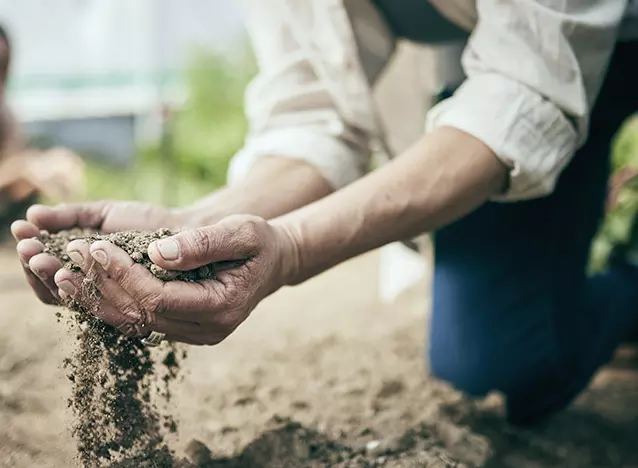
Supporting Biodiversity at Veolia
Biodiversity is vital to the proper functioning of ecosystems — for crop pollination, soil fertilization, oxygen production, food, medicines and more life-sustaining processes.
At many of our sites, we work to reverse the impacts of industrial development on biodiversity through targeted projects that improve the habitats of plants and animals that share these spaces.
As part of this commitment, we identified 10 priority biodiversity sites across the U.S., conducted ecological assessments and developed management plans to protect them. By the close of 2023, we implemented an average of 82% of the actions detailed in our management plans — and work continues.
Our ecological management plans address a variety of important biodiversity issues at these sites, including:
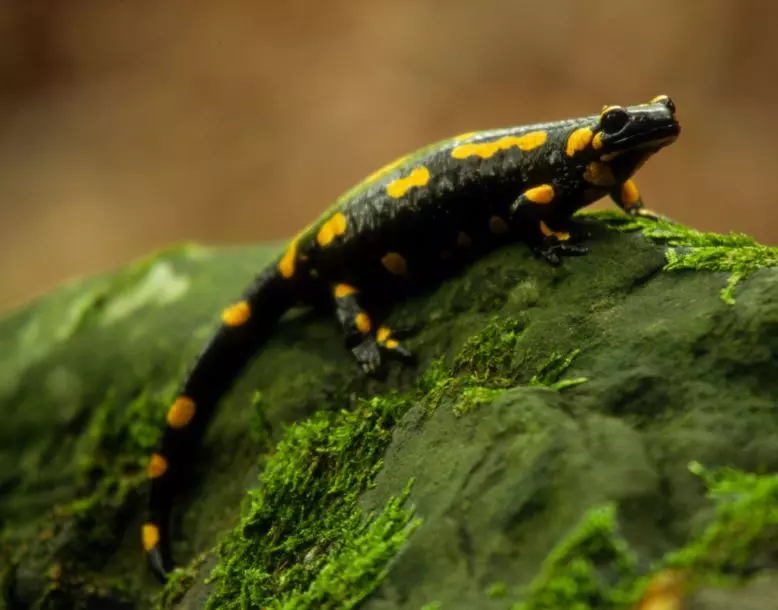
Protecting endangered species
Planting native species
Controlling or removing invasive species
Reducing light pollution
Complying with discharge regulations
Eliminating or reducing pesticide use
Taking steps to reduce carbon footprints
Conducting ecological impact studies for future site development
Implementing education and awareness projects
Protecting Fragile Ecosystems
Biodiversity—or the variety of life that makes up our natural world, including plants, animals, fungi, insects, microorganisms, and more—are under threat. Climate change, pollution, and rapid human population growth are depleting resources necessary to sustain life, directly affecting the delicate balance of our ecosystem.
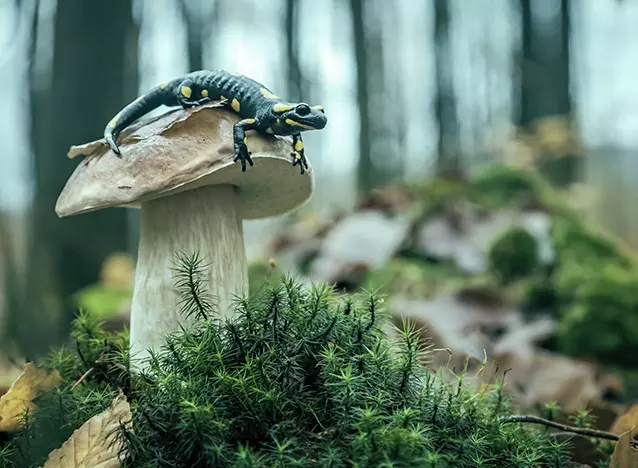
A Leadership Role
At Veolia, we take on a leadership role to proactively balance the needs of the environment and human progress. This includes immediate action to address habitat loss and invasive species, as well as implementing long-term strategies to clean up and protect our essential resources, reduce carbon emissions, and adapt to the impacts of climate change. Our constant aim is to support biodiversity in every way possible.
Mapping Out Solutions
Through studying the interactions between nature and our activities; supporting our own and our customers’ operation sites; and raising awareness both among employees, customers, and subcontractors, we can map out solutions that reconcile human progress and protect our environment far into the future.
Rethinking Resource Use and Reuse
Improving access to resources
We provide practical solutions that use fewer environmental resources and are cost-effective, allowing us to make the most of the resources we have. This helps to increase their availability and make them accessible to more people.
Preserving resources
We develop solutions that help conserve resources, optimize their usage, and maintain their quality and efficiency throughout their lifecycle.
Replenishing resources
We provide solutions to address the growing scarcity of natural resources by creating new "secondary" resources. These resources offer opportunities for social and economic development while also preserving the environment.
Operational Site Assessments and Solutions
Our Process
We have identified dozens of sites throughout the United States that have the potential to support sensitive species or habitats. We perform ecological assessments at those sites and use that information to develop plans that help protect and restore the unique variety of animals, plants and microorganisms that make up our shared environment.
The goal of these assessments is to identify areas where Veolia can assist our clients in preserving biodiversity, using the results of these assessments as a value-add to existing customer relationships. In some instances sites are Veolia owned and operated, where the benefit to the customer is indirect.
Veolia’s Peregrine Falcons
We set up a peregrine falcon nesting box on the rooftop of its wastewater treatment facility in Milwaukee, WI. Peregrines, native to Wisconsin, began to disappear when the pesticide DDT came into widespread use across North America, which increased the fragility of the falcons’ eggs, dropping population levels close to extinction. A live-streaming camera monitors the falcons in real time while providing the community with a window into the daily life of this iconic species.
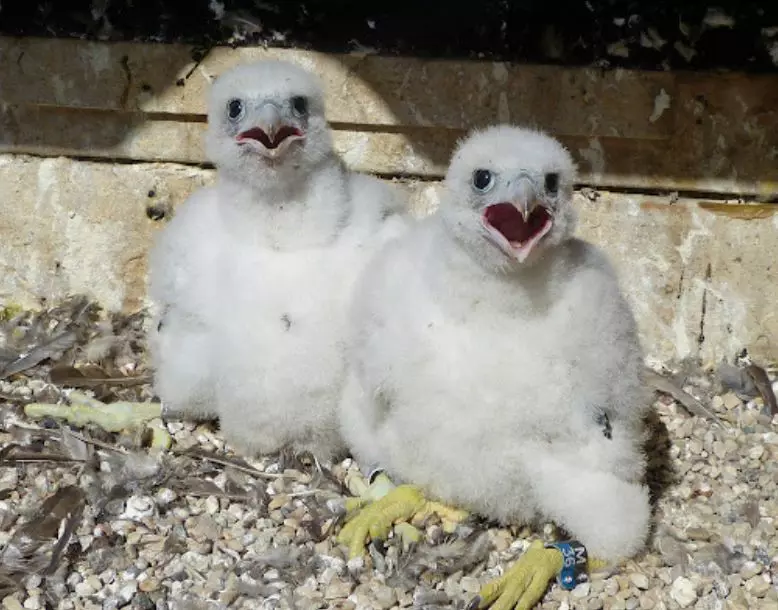
Bees in Alabama
Since 2019, the Northside Water Pollution Control Facility, owned by the city of Auburn, AL, and operated by Veolia North America, has housed beehives as part of a partnership with the city and Auburn University. The University is studying the effects of honey bee parasites and how they interact with environmental stressors. Bees are pollinators and essential to supporting a healthy ecosystem—at this location they can easily access native wildflowers on the property. In addition, this initiative has a positive impact on the community by raising awareness about the importance of biodiversity in our urban environments.
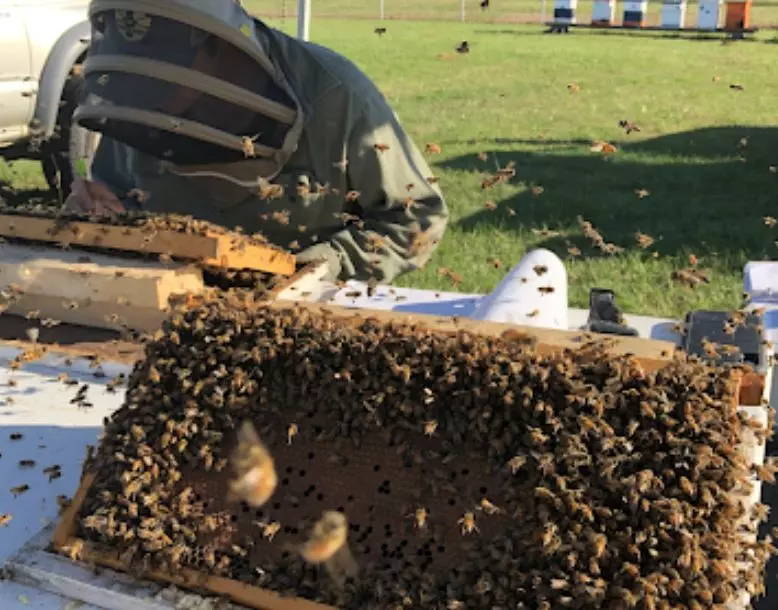
What's next?
Looking ahead, our ambition is to double the number of sites in our biodiversity management program to match our business growth. For 2024 we have identified additional sites to add to our biodiversity management system, and ecological evaluations are planned to assess their unique needs. We will also continue the implementation of management plans at our existing sites, and voluntary efforts across our operations nationwide.


